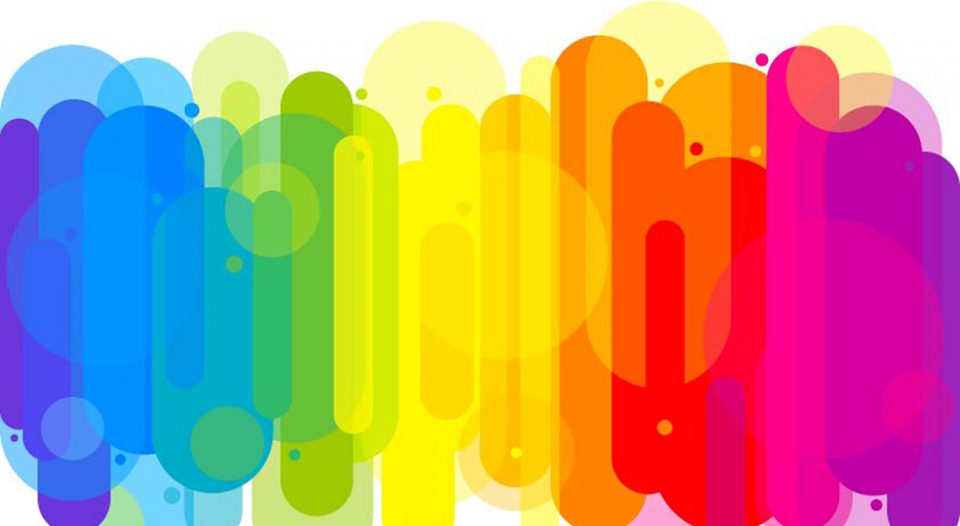When Daniel Bowman Jr. received an autism diagnosis in his mid-30s, so much suddenly clicked into place. His new book, On the Spectrum: Autism, Faith, and the Gifts of Neurodiversity (Brazos Press, 2021), allows readers to follow his journey as he begins to understand the things that are different, unique and challenging about being a person with autism in a world that isn’t always welcoming to them.
An Episcopalian, Bowman shares how he learned the ways he was best suited to serve in his congregation and how the traditional idea of church services is geared toward neurotypical people. Living Lutheran spoke with him about how On the Spectrum can be helpful for those in faith leadership roles as well as anyone seeking to better love their neighbors, however their brains are wired.
Living Lutheran: Could you tell us about your book?
Bowman: On the Spectrum is a memoir in essays. It’s important to me to say that because I want people to understand that this is one person’s story. Sometimes when people see the word “autism” in a book, I have felt like they have lofty expectations. I’ve had a lot of people on Twitter and other platforms say, when they heard the title of this book, “This is a book that’s desperately needed in the church.” That both thrilled me and scared me.
It thrilled me because I thought, what if that’s true, and maybe I caught lightning in a bottle when I just happened to be in the right place at the right time addressing a subject that’s important to people? On the other hand, I thought, does that mean they’re going to want or expect a theology of disability, or a deep dive into Scriptures having to do with neurodivergent thinking? Do they want it heavily researched? Do they want a clinical book? I can’t give them any of that stuff. I did some research, but I can just give them my own stories. So, it’s a memoir in essays, and it operates on the principle that if I can tell these stories well, they can help me heal from some of my own trauma, and that maybe they’ll be available to others to do something similar.
You were an adult when you discovered you had autism. How has that changed your perception of yourself and how it informed your faith journey?
A lot of autistic characteristics—and the behaviors that accompany those, and the ways of thinking and apprehending the world through the senses associated with autism—feel weird to people in the world. So you grow up thinking that you’re weird. I don’t know anybody on the spectrum who didn’t grow up thinking that they are absolutely so weird and other people are normal. That’s tough.
If we don’t take the time to listen to their stories, how can we love them?
So when you have a diagnosis … it helps to reassess who you are and what you thought about yourself. It changes the story that you tell yourself about yourself. Because for 35 years, that story might have been, “I’m weird and I just wish I wasn’t, because it makes life hard and stressful.” And suddenly, the story you tell yourself is, “Oh, I have autism—that’s just a thing that people have. I’ve learned a lot about it, and I feel empowered and comfortable now.” When you can get to that place, that’s a really good thing.
I’m talking about faith, too, when I’m talking about that, because you can look at your role within the faith community. You can look at [what] you’ve been presented as “normal” ways to serve people and to love people, and then you can make good decisions for you and for your neighbor based on who you know yourself to be. I think that’s a kind of authentic faith.
How do you see the gifts of neurodiversity play out in the body of Christ?
I’ve come to think that there are tremendous gifts associated with neurodivergence and with autistic people in particular. They just usually don’t look like gifts to people. But the results can be astonishing and can change the world. …
You’ve got to make space by not being afraid of it. First of all, you’ve got to be grateful that we’re learning more about human identity and what it means to be a person on this earth. Then look into and listen to some of the stories from people who are in [a given] marginalized group. This is, I assume, true for people of color or women or other marginalized groups, as well as disabled people. We need to listen to them and [lift up] their voices and hear them in the church. Then we’ll understand how to love our neighbor better. If we don’t take the time to listen to their stories, how can we love them? We don’t know who they are and what they need.
What are your hopes for your readers?
I hope that autistic people will read it and feel seen and feel loved and feel like objects of wonder, like all people ought to feel sometimes—objects of adoration, special people. Interesting, cool people, because they are.
It’s a love letter to my autistics, but also, I hope it’s a story that people can read and say, “Oh, I’ve heard this word “autism.” I have a nephew who’s autistic, or there’s a kid in my church, but I don’t know a lot about it, and then I read this guy’s book, and now I feel like it’s just another thing and it’s OK. I don’t have to be afraid of it. I don’t have to demonize it or pathologize it. Perhaps I want to meet these folks where they are and see what we can do together.”






